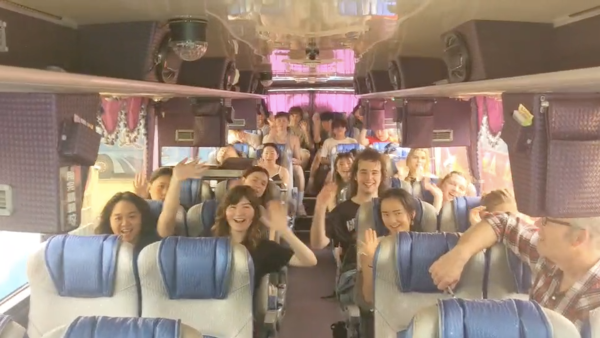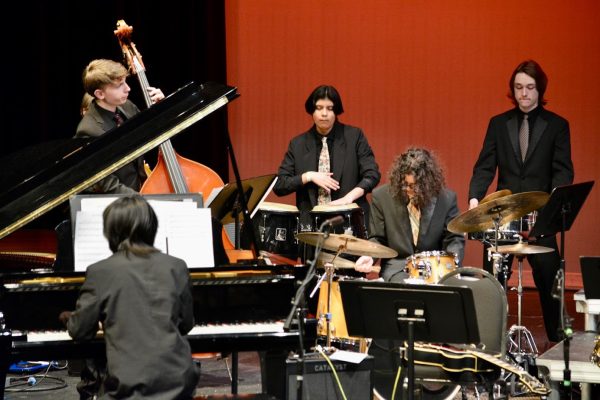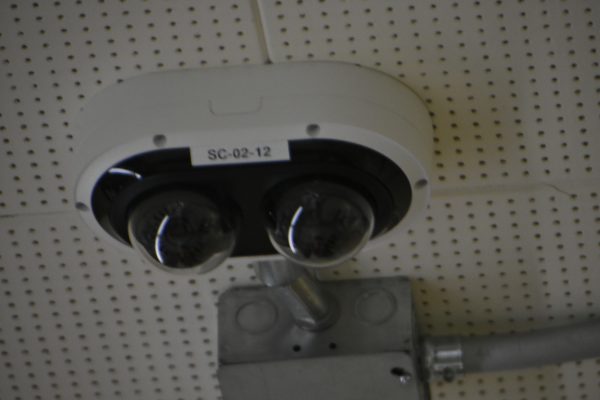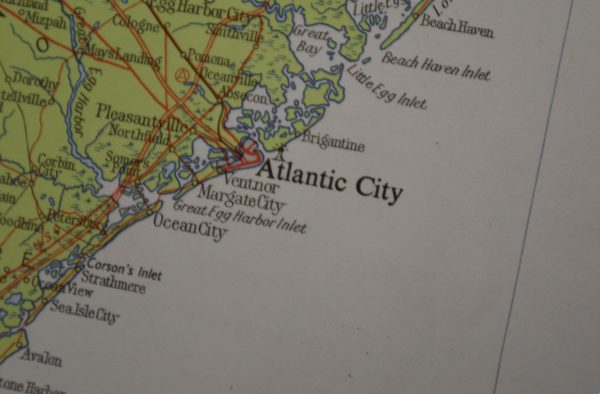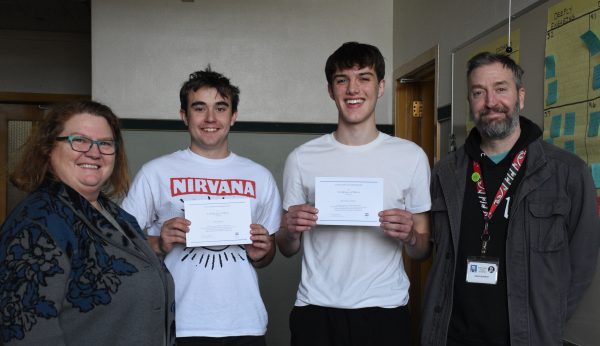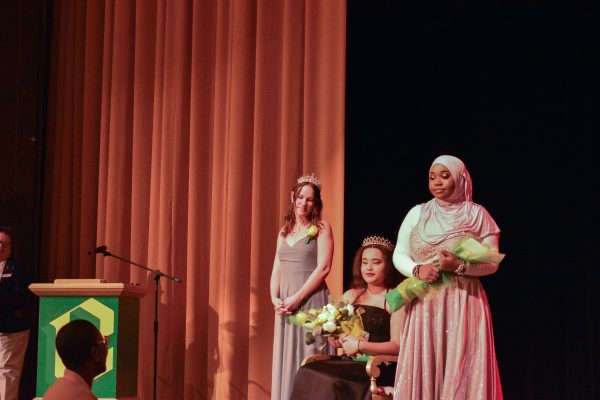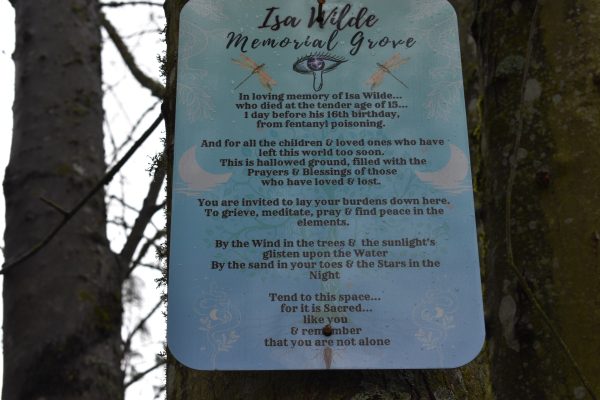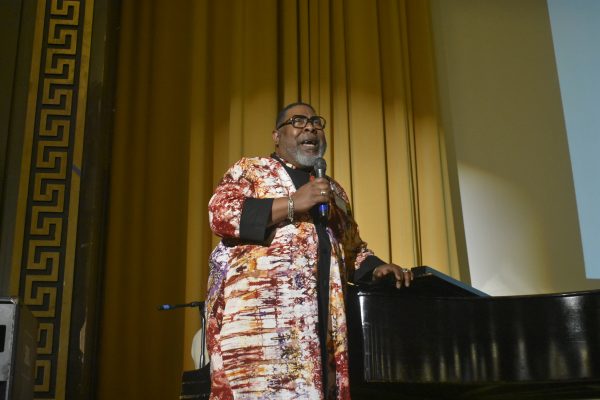Wagner-West brings mindfulness to Cleveland
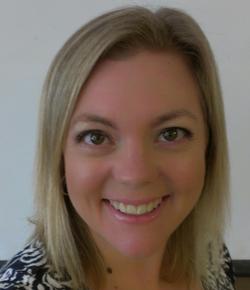
Katy Wagner-West assumed the role of vice principal at the beginning of the 2014-2015 school year. Her knowledge of the human brain and previous teaching experience are definite contributors to the progressive perspective she has regarding education. She has a background in neuroscience and previous teaching experience that shows in the progressive ideas she has for Cleveland. In her short time here she has already rallied staff members around the topic of mindfulness in education and how it could positively affect our school.
What sparked your interest in this topic?
My background as an undergraduate was in cognitive neuroscience, and research psychology was always something I had a passion for. When I went into teaching, I pulled back on a lot of those strategies I learned and my understanding of psychology.
I understand you are doing a study surrounding the topic of mindfulness. Can you explain your project?
I started a doctorate program at University of Portland in neuroeducation. It’s looking at neuroscience, cognitive, psychology and education research; triangulating those different fields. I’m trying to bring it together into a language people can understand so we can make progress towards changing education policy. My paper is examining the
relationships between teachers and students in a classroom implementing mindful strategies. I’ll be looking at student outcomes like grades, attendance and test scores, but also the qualitative components like the level of questioning between teachers and students.
Do you incorporate meditation into your own life?
I started meditating regularly the first year I started teaching, 2004, then when I had my daughter six years later. I started looking at how meditation could help in the pregnancy process. From a neuroscience perspective I wanted to see if I could use meditation to switch my brain to make things go smoothly and prepare my daughter for a good entry into the world. What I learned is that I can actually change my brain waves by meditating, and I could impact my physical health by being more mindful in all my activities. I learned to be more purposeful and engaged in the moment.
Do you think people are apprehensive to believe research that is so intangible?
One of the tricky things with mindfulness, and the research surrounding it, is a lot of it is internal. This is a difficult point for some people who question how we measure that, especially neuroscientists who are all about collecting hard data.
How does your knowledge in this area affect you professionally?
I started looking into mindfulness in classrooms when I was teaching science at a middle school in 2010. I attended a MindUP training in Texas and chatted with a lot of strong researchers in social emotional development. I started using MindUP in my classroom. I had a really supportive principal who was excited about the benefits of mindfulness practices in school.
Did this interfere with the curriculum?
Even though it took time away from the science curriculum, I noticed that the students really enjoyed those activities. I was able to share my neuroscience background with them. A lot of them had no idea about their brain at all. I thought it was interesting that while we were asking people to be learning and trying all these cognitive strategies, people didn’t actually know about their brains. I taught my students the basics of why behaviors are the way they are and how we can influence those behaviors to make good decisions. I wanted them to understand other people a little bit better. What I noticed too was I was able to get through my curriculum and still get through these activities because the students were more focussed in the other class periods.
How did the students feel about the alternative lesson plans?
I collected data about those students and the overwhelming response was that they really enjoyed meditating every day. If I forgot to do the meditation, they’d remind me.
What did these mindfulness activities consist of?
Mostly breath meditations (two minutes a day) where they’d focus on a chime and count their breaths. I’d ask them to focus on how the body felt in those breaths. Once a week I would do a neuroscience lesson and mindfulness activity. The focus went from being aware of yourself, to being aware of the people around you, to how you fit into the larger world and how to be present in that space. It was really successful. Negative classroom behaviors decreased and special-ed students felt like they learned strategies they could use in their other classrooms.
Are you hoping to bring this to Cleveland?
Last year Wilson High School started a class called Mindful Studies. It was the first mindfulness class offered for high school credit in the district; and the first I’ve heard of in the country. I’m hoping we can build something like that at Cleveland so students can begin using those strategies, too. Hopefully it will spread district wide. It’s a piece that I think a lot of students are missing, and something truly valuable.
Do you think the Cleveland community will be receptive to this style of teaching/learning?
When I first came here I mentioned my interest to the staff and immediately I had many people come up to me. They said they were waiting for somebody to step into a leadership role and move forward with mindfulness. There’s a lot of teachers backing it who want to learn more. Cleveland is a community of learners. That’s something I’m excited about. People are excited about learning, not just jumping through hoops.
How do you see this becoming successful here?
I want to take this opportunity to do it right. To share valuable information so people get the maximum benefit, instead of just thinking it’s a fad. Meditation has been around for thousands of years, and people have known there are benefits, but many times in schools new research comes up and they try it and it fails. Then it is just a one more thing to deal with. Or we toss money into it but don’t get the return. I want to make sure this is a good program before introducing anything.

Grade
What's on the bookshelf?
Favorite food?
Favorite thing about Cleveland?



